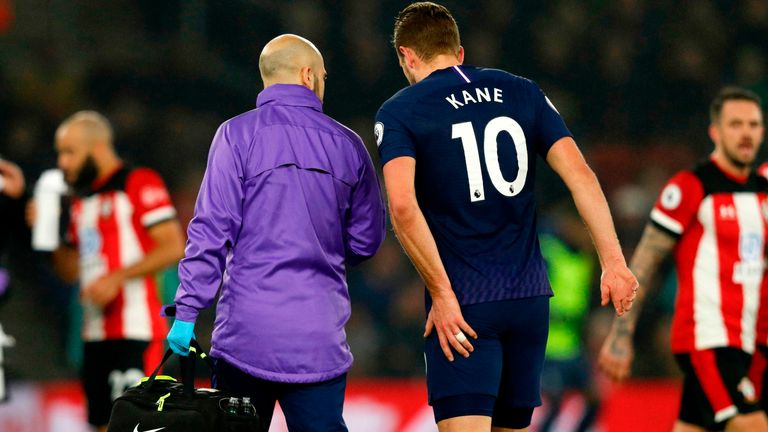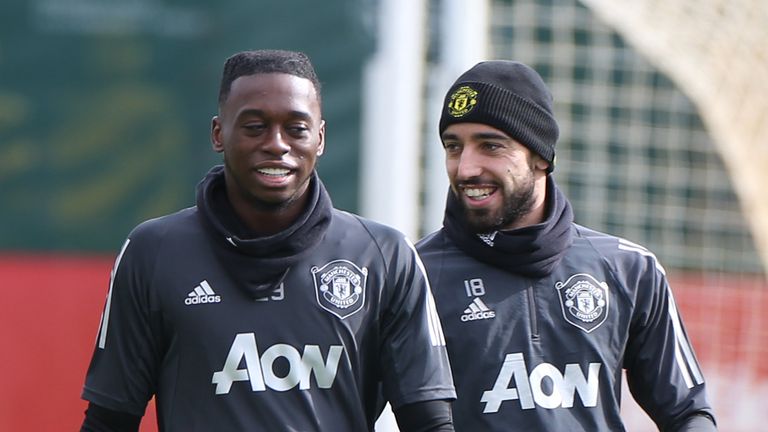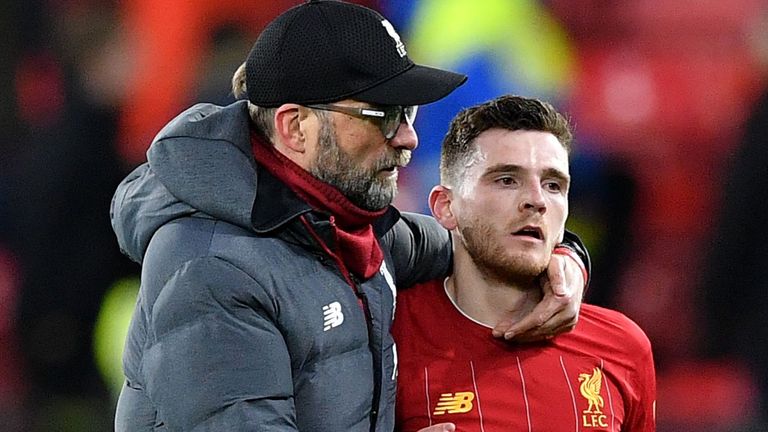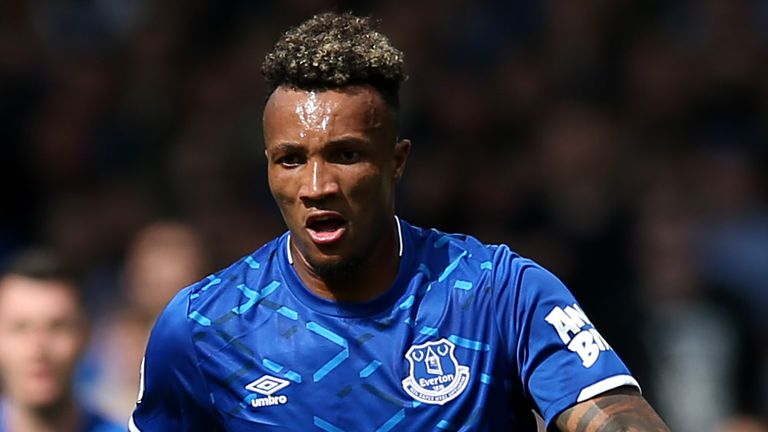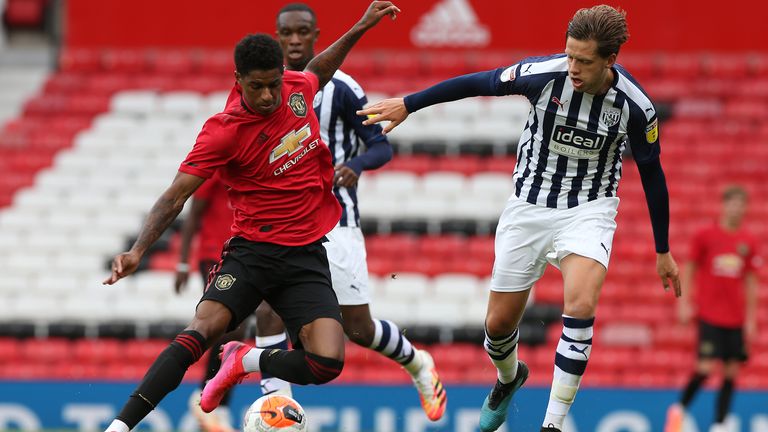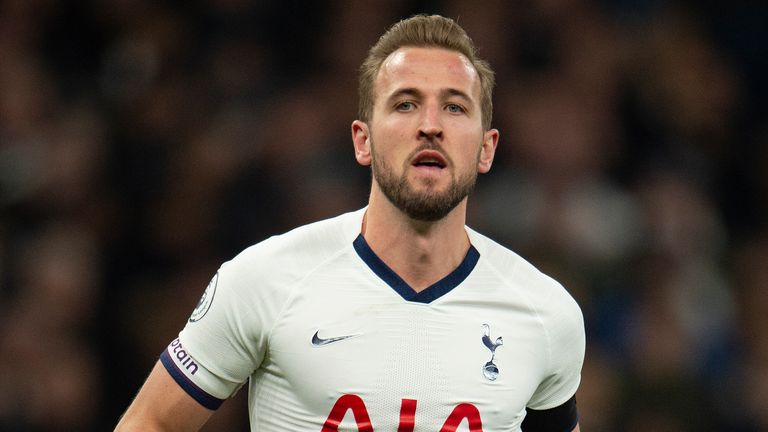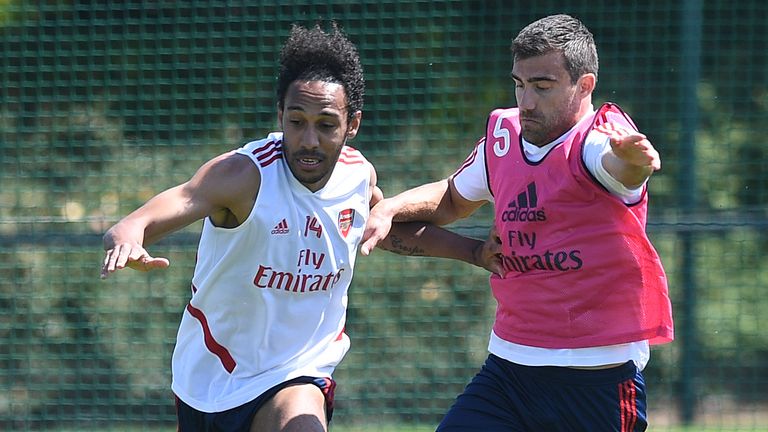Premier League restart: Could unscheduled break lead to heightened risk of injury?
Former Arsenal and England physio Gary Lewin believes the limited number of friendlies could lead to increased muscle injuries
Tuesday 16 June 2020 17:32, UK
The Premier League returns this week after 100 days of inactivity, but there will be fears among coaches and physios of an increased chance of injury after such a long lay-off.
The likelihood of the treatment rooms being filled during a period of intense fixtures is inevitable, unavoidable and likely to place the bigger clubs used to rotating their players at an advantage.
- Premier League fixtures: The new kick-offs and dates
- Premier League restart: The live games on Sky Sports
FIFA has sought to counteract the limited preparation time and fatigue with managers able to call upon five substitutions during matches, but we are about to find out which clubs have dealt with the unprecedented circumstances better than others.
Former England and Arsenal physio Gary Lewin sympathises with the obstacles facing medical staff in getting the players up to speed after three months without competitive action.
He told Sky Sports: "The problem you have is that players used to get between eight and 10 weeks off in the summer - not internationally but at club level.
"The problem you've got now is different variables as a result of COVID-19 and the restrictions put in place. The biggest issue the clubs would've had initially was getting them up to speed physically without any kid of group or contact session.
"They've tried to do it in a way where everything's phased and in a very progressive way while checking the numbers of anyone who tests positive for the virus.
"You will expect to see more muscle injuries occurring. Players may feel it is just them being rusty, but from a medical point of view it's about reaction times. How the body reacts to jumping and landing.
"That will put pressure on joints, so you could see some significant joint injuries, but the main area people will be worried about are the muscle injuries."
Over the past week, Premier League clubs have been partaking in friendlies in order to build up the necessary fitness, but it has not been without its challenges.
Manchester United were due to face Stoke at Carrington when the encounter was aborted at the last minute after learning that visiting manager Michael O'Neill had tested positive for coronavirus.
Two hour-long friendlies with West Brom were hastily arranged at short notice to offset the cancellation, but the scenario highlights the dual challenge facing clubs ahead of the restart, minimising the risk of injury while upholding strict hygiene measures in place based on government guidelines.
Lewin, who spent 22 years with the Gunners and worked at nine major tournaments with England, believes June 26 would have been a more sensible date for the season to resume at a time when the pandemic is still being tackled.
"Normally in pre-season, you'd start off with a couple of weeks of really light training, with close contact rather than full contact, building up into contact sessions. You'd be working on the strength and power of the players as well as their neuromuscular abilities, so their reaction times.
"Only after that would you move into friendlies where you can slowly build up the amount of competition and intensity over a six to eight-week period.
"The uniqueness of what they're trying to do now is that they're going through the phases where they've worked on their physical side (so runs - pre-phase one), onto phase two where there's still no contact but there's ball work, before the close contact and then the physical contact.
"The problem that is going to arise is the general conditioning of falling over, getting up, hitting players, colliding with players. That side of the game you only get from intense training sessions and friendlies, which many teams will miss out on, so there's going to be a few problems."
'Break more like injury lay-off than pre-season'
The Premier League is provisionally scheduled to finish on Sunday July 26, meaning that all clubs face playing nine league fixtures in the space of 37 days - a game every four days for those no longer in the FA Cup.
During the condensed fixture schedule between November and December this season, there was a 40 per cent increase in injuries across the division - and Sheffield United manager Chris Wilder has even put on three training sessions in a single day over the past fortnight to ensure his players hit the ground running.
- £18 Premier League and Football channel offer
- Watch 39 Premier League & 45 EFL games exclusively live
Gary Neville has spoken previously about football's shutdown not being the same as the period of time between seasons - despite Aston Villa's home fixture with the Blades marking 100 days since a ball was last kicked in anger in the Premier League.
"I would liken it to when a player has had a two-month injury," Neville told the Football Show. "Most players at some point in their careers would have been out for this period of time.
"In those two months, you wouldn't be doing any contact training whatsoever, you'd be doing a little bit of work with the physios maybe before getting back into training, and in the gym, but as soon as you went back into training with the team, within 10 days or two weeks of training, you'd be playing again.
"So I don't understand why this is different from what would be an ordinary two-month injury lay-off."
Premier League clubs have taken advantage of being given permission to organise friendlies at training grounds or stadiums to fine-tune ahead of the resumption of action.
It had previously been thought that intra-squad matches would be the only way to prepare in an 11-a-side match, but strict guidelines have been put in place for teams to face other opposition.
The league sent guidelines to the 20 teams last week outlining restrictions, including the need for a full risk assessment to take place before matches that members of staff would have to officiate instead of referees.
Clubs have been allowed to travel no more than 90 minutes for these friendly games, which players must go to in their own cars, arriving in full kit, with social distancing and hygiene measures implemented.
It has been a challenge for the medical staff as well during the various steps in football's return. During phase one, only five players were allowed on a pitch at any given time, with the number increasing to 10 in phase two.
Where massages would conventionally take place to ease the natural build-up of lactic acid, players have in many cases had to seek alternative treatment - and Lewin highlights that it is not just the physical condition that will be on the minds of those returning to action.
"What will be crucial is how clubs mentally get their players prepared. The anxiety of returning to football with the virus in the background will be a major obstacle as there's going to have to be changes to the pre-match preparation.
"There's going to be a lot of players who will be able to chuck their shirts, shorts and socks on and go out and play, but there will be others who will do an hour and a half of pre-activation before the game to get themselves ready.
"There's going to have to be quite a lot of compromise and the players are going to have to get used to real changes and tackling the anxiety of some is going to be one of the biggest challenges."
Can PL draw conclusions from the Bundesliga?
Premier League players will have had just three weeks of contact training by the time the first round of matches gets underway this week.
In the first three rounds of Germany's top flight returning to action, it was reported via Australia-based sports scientist Dr Joel Mason that there had been a rise approaching 250 per cent in the number of injuries.
But Ben Dinnery and Johnny Wilson of Premier Injuries - a website that specialises in injury data from the Premier League - believes it would be wrong to deduce too much from the Bundesliga games, while also debunking the reported spike in injuries.
Dinnery told Sky Sports: "Obviously, all eyes have been on the Bundesliga, and while initial weeks of the resumption showed an increase in the season average - to be expected as players acclimatise to the rigours of playing competitive football again - numbers are inherently in line with that of previous seasons at the same stage.
"The report of injuries, and the understanding of what constitutes an injury can be debated. I've seen the 250 per cent increase touted; I also saw reports of there being eight muscle injuries on the opening weekend. Simply not true.
"Only one hamstring was accurate - Giovanni Reyna - and his withdrawal was more of a precautionary measure as he returned to team training three days later and was named in the matchday squad the following weekend. The others were fatigue-related or impact (dead leg). Injuries were actually down last weekend."
Fatigue is a known risk factor for injuries - but Wilson does not envisage teams making substitutions based solely on theoretical injury risk while preparations around each game will also follow a familiar procedure.
"Principles regarding training intensity and recovery will be similar if not identical to before the pandemic," he said. "Training sessions will be timely, intense and focus around the technical, tactical and physical aspects of the sport.
"Players have had a long period of remote conditioning and then reintegrated through a periodised phased re-integration process to prepare them physically, mentally and tactically as best as possible while also endeavouring to mitigate injury risk."
The training programs will remain based around the individual needs of the person, their injury history and the demands of the game.
In terms of the pitches themselves given the increased temperatures, the advent of underground heating, high-tech watering solutions and state-of-the-art grass means the surface hardness at the training grounds and in the stadiums will be kept at a homogenous level regardless of the season.
La Liga has seen teams afforded cooling breaks in each half, and Dinnery says the sudden shift from training to competitive games will place greater emphasis on how players keep hydrated.
"Fuelling strategies pre, during and post games are imperative to ensure optimal performance," he concluded. "On average, players will have finished fuelling three hours prior to the start of the game to allow for gastric emptying and for the food to be converted into glycogen and stored in the muscles to fuel exercise for the game.
"Players may take on a weak carbohydrate drink before and during the game to top up glycogen levels and to avoid dehydration. Regular small amounts of fluid will help to delay dehydration and a reduction in performance."

